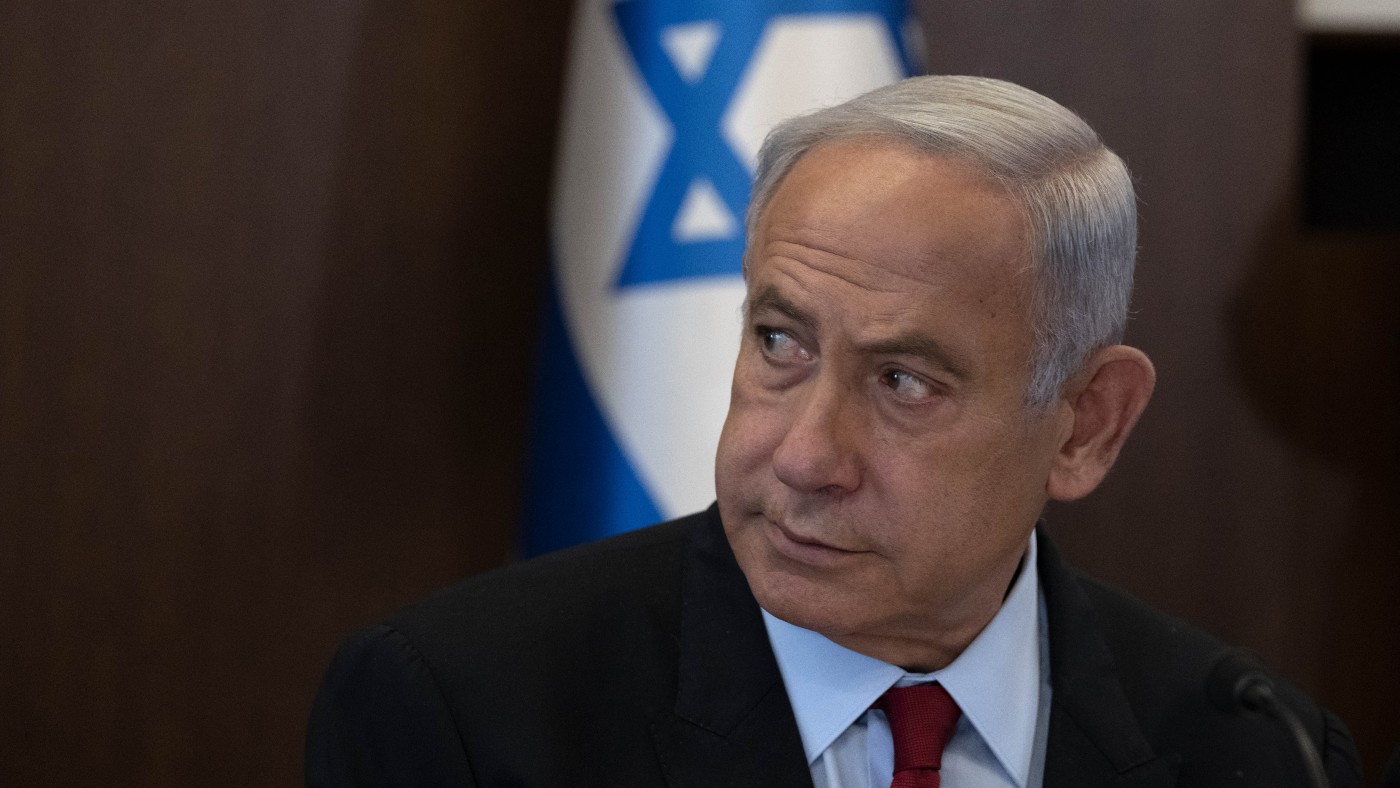ICJ ruling: will 'damning verdict' stop Netanyahu?
The UN's top court has ruled Israel's occupation of Palestinian territories breaks international law

A free daily email with the biggest news stories of the day – and the best features from TheWeek.com
You are now subscribed
Your newsletter sign-up was successful
"If there was any lingering ambiguity about the illegality of Israel's decades-long occupation of Palestinian territory, it should have been quashed by a landmark ruling from the world’s top court," said the Financial Times.
In an 83-page advisory opinion released last week, the International Court of Justice (ICJ) scrutinised Israel's activities in Palestinian lands controlled since 1967. "The result was damning," said the FT. The top UN court found that "virtually every Israeli action in the territory violated international law." It demanded that Israel halt settlement construction immediately, declaring Israel's presence "unlawful" and requiring it to end "as rapidly as possible."
Ruling 'unlikely to temper Netanyahu's government'
The ICJ ruling is non-binding and unlikely to "temper the behaviour of Prime Minister Benjamin Netanyahu's far-right government, which includes ultranationalist settlers who advocate annexing the West Bank", said the FT. Settlement construction has "accelerated under Netanyahu's watch", and Israel "has a history of ignoring UN resolutions and international court judgments critical of its actions, with the quiet acquiescence of its western allies". Nonetheless, the ICJ's findings are "significant" said the paper. "They have put a microscope on the full extent of Israel's illegal practices in the occupied territory at a time when the war triggered by Hamas' horrific October 7 attack has put renewed focus on the need for a two-state solution."
The Week
Escape your echo chamber. Get the facts behind the news, plus analysis from multiple perspectives.

Sign up for The Week's Free Newsletters
From our morning news briefing to a weekly Good News Newsletter, get the best of The Week delivered directly to your inbox.
From our morning news briefing to a weekly Good News Newsletter, get the best of The Week delivered directly to your inbox.
The court's ruling is "more than a legal setback for Israel", said Kenneth Roth, former executive director of Human Rights Watch, in The Guardian. "It is a virtual invitation for Karim Khan, chief prosecutor for the International Criminal Court (ICC), to prosecute the officials behind the settlements". The timing is also "significant", said Peter Beaumont, The Guardian's senior international reporter. "With Israel isolated over its conduct of the Gaza war, and under investigation at the ICJ and the international criminal court for alleged war crimes, the stark assessment of the long-term illegality of Israel’s occupation will only reinforce that isolation".
Israel's 'fortress mentality'
The ruling has sparked widespread "outrage" across the political spectrum in Israel, as Palestinian leaders hailed the ruling a "watershed moment", said Tortoise. Pushing back on the ruling, a defiant Netanyahu declared that "the Jewish people are not occupiers in their own land, including in Judea and Samaria [the West Bank], our historical homeland".
There has "long been a fear that Israel may eventually go ahead and annex the occupied West Bank," as it did with East Jerusalem and the Golan Heights, said Al Jazeera. The Israeli government may even be "banking on a new Trump administration giving it the cover to annex the West Bank, intensify its destruction of Gaza and ignore the international pressure to give the Palestinians their rights". Israel's "fortress mentality, and its attempts to discredit the ICJ and other critical international bodies, mean that it will likely continue on its current path, at least in the short term", said the news site.
However, Mai El-Sadany, executive director of the Tahrir Institute for Middle East Policy, suggested the ICJ decision could have consequences. "Even some of Israel's closest allies, including the US, have recognised parts of the advisory opinion, particularly on the illegality of the settlement policy", she said. "The majority of countries across the world agree with the ICJ’s advisory opinion", El-Sadany added. As more countries "choose to support the rule of law when it comes to the occupation, that pressure may eventually reach a point where Israel, and its backers, buckle", said Al-Jazeera.
A free daily email with the biggest news stories of the day – and the best features from TheWeek.com
Sorcha Bradley is a writer at The Week and a regular on “The Week Unwrapped” podcast. She worked at The Week magazine for a year and a half before taking up her current role with the digital team, where she mostly covers UK current affairs and politics. Before joining The Week, Sorcha worked at slow-news start-up Tortoise Media. She has also written for Sky News, The Sunday Times, the London Evening Standard and Grazia magazine, among other publications. She has a master’s in newspaper journalism from City, University of London, where she specialised in political journalism.